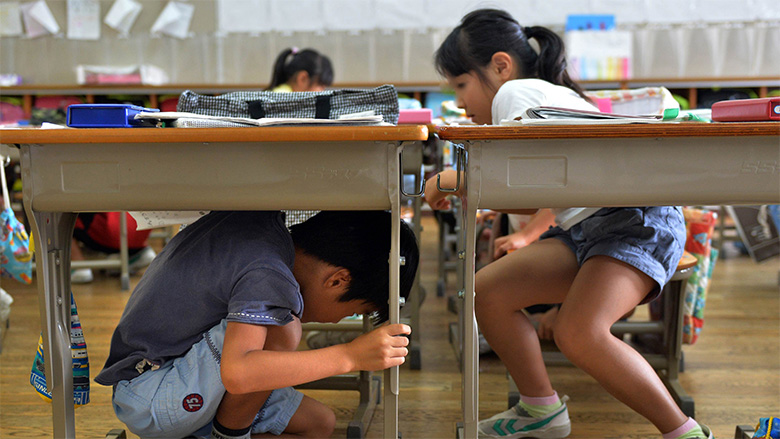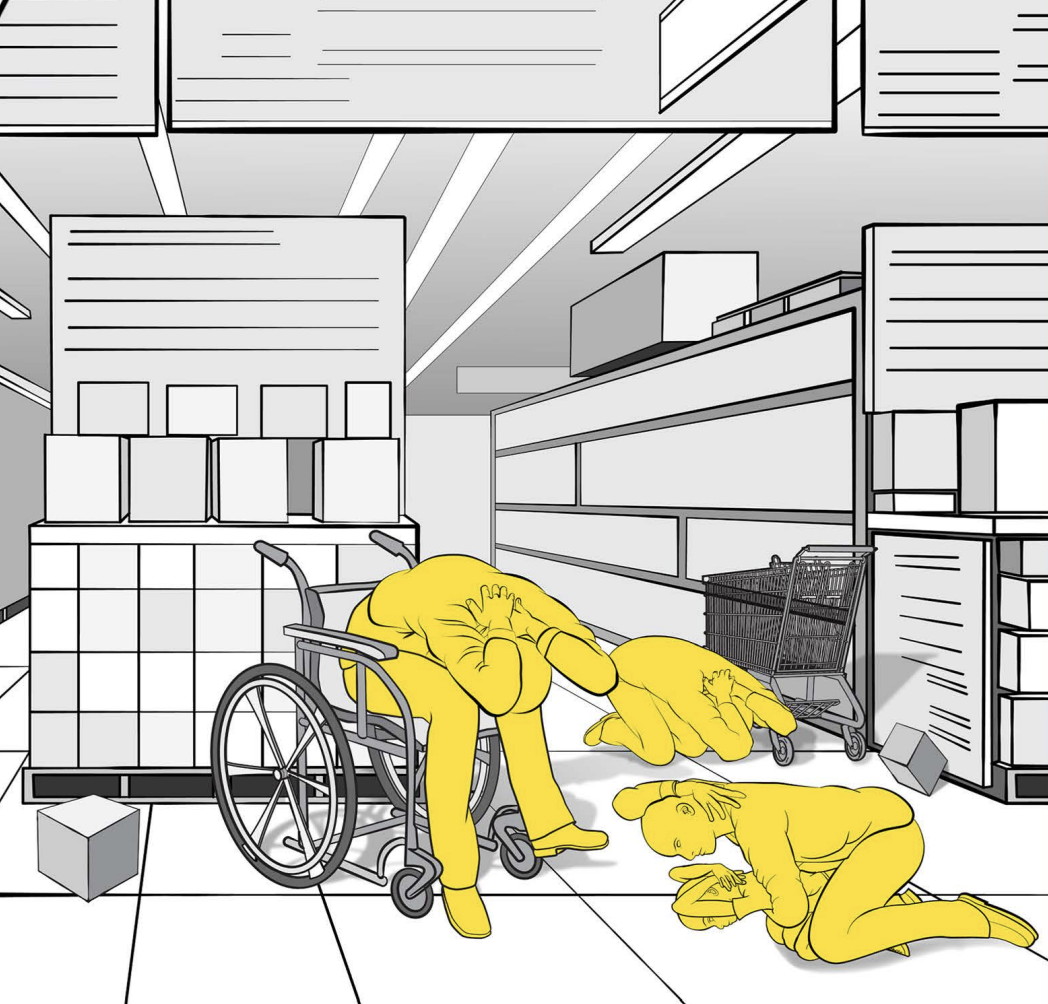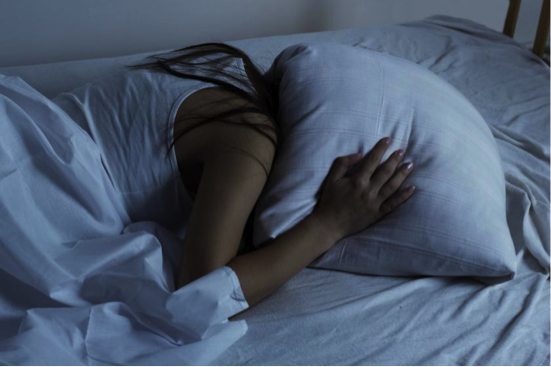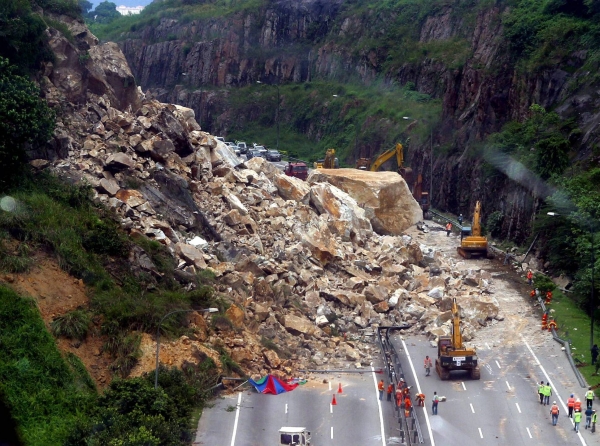Here's What You Should Do In The Unlikely Event Of An Earthquake In Malaysia
The number one rule is: Drop, cover, and hold on.
Generally, earthquakes are not a current concern in Malaysia, but it has come to light that there are many Malaysians who do not know how to react when a tremor occurs
On 25 February, a strong 6.2 magnitude quake struck Indonesia's Sumatra at 9.39am, which also sent tremors to parts of Peninsular Malaysia.
Many who felt the shaking were seen rushing outside of their office buildings or were asked to temporarily vacate the premises.
If you are inside a building:
Stay calm and stay indoors.
- Drop, cover, and hold on. This means taking cover under a sturdy table or bench, or bracing yourself in a doorway or corner.- Stay away from windows, bookshelves, cabinets, heavy mirrors, hanging flower pots, and other heavy objects that can slide and fall.
- Grab anything that can protect your head from falling debris and glass shards like a coat, blanket, books, newspapers, cardboard boxes, etc.
- Do not rush out of the building.
If you are in a high-rise building, you should also:
- Stay inside the building and remain on the same floor.
- If you are not near a desk or table, move against an interior wall and protect your head with your arms.
"Drop, cover, and hold on" rule demonstrated here.
Image via Earthquake Country Alliance via BerkeleysideChildren in Japan learn to duck under a table or desk to avoid falling objects in the event of an earthquake.
Image via AFP via The World BankIf you happen to be outdoors:
- Find a clear spot away from power lines, electric poles, trees, tall buildings, walls, and lamp posts.
- Drop to the ground and stay there until the shaking stops.
- Beware of falling building debris such as power lines, street lights, trees, etc.
If you are on a sidewalk near buildings, duck into a doorway to protect yourself from falling bricks, glass, plaster, and other debris.
Stay away from poles or streetlights and instead find a clear open space if you are outdoors when an earthquake or aftershock of one occurs.
Image via Inforoadblock (Facebook)If you are inside a crowded store or other public place:
- Do not rush for the exits. Many others could have the same idea, which could lead to accidents.
- Remember to drop to the ground until the shaking stops.
- Move away from display shelves containing objects that could fall.
Getting next to a shopping cart, beneath clothing racks, or within the first level of warehouse racks may provide extra protection.
Image via FEMAIf you are in a moving vehicle:
- Pull over to a clear location and stop the car as soon as possible when a safe area has been determined.
- Turn off your car and use the parking brake, then stay there.
- Do not stop on or under bridges, elevated roads, overpasses, cable resistance, or where buildings are prone to collapse.
- Stay in the car with seatbelt fastened until the shaking stops.
- Do not attempt to get out of your car if there are downed power lines on the road. Wait for assistance.
If you are in bed:
- Stay there, roll onto your stomach, and protect your head with a pillow. You are less likely to injure yourself that way.
- If you are under a heavy light fixture that could fall, move to the nearest safe place.
- Use a doorway for shelter only if it is in close proximity to you and if you know it is a strongly supported, load-bearing doorway.
- A strong piece of furniture or a bathtub can provide the void space that lets you survive a collapsing building until rescuers find you.
- Move away from heavy appliances that could topple like refrigerators, stoves, and overhead cupboards.
If you are in a mountainous or coastal area:
Be alert for falling rocks and other debris. Landslides are often triggered by earthquakes.
If you are near the coastline, be aware of possible tsunami warnings. Earthquakes that last for more than 20 seconds are commonly followed by a tsunami. Move to higher ground as soon as possible.
Here's what you should do AFTER an earthquake:
- Check yourself and others for injuries. Provide first aid for anyone who needs it.
- Check water, gas, and electric lines for damage. If any are damaged, shut off the valves. Check for the smell of gas. If you smell it, open all the windows and doors, leave immediately, and report it to the authorities.
- Turn on the radio. Don't use the phone unless it's an emergency to avoid clogging up the emergency hotlines.
- Stay out of damaged buildings.
- Be careful around broken glass and debris. Wear boots or sturdy shoes to keep from cutting your feet.
- If you're at school or work, follow the emergency plan or the instructions of the person in charge.
- Expect aftershocks. Remember to drop, cover, and hold until the shaking stops.
Here are some useful emergency hotlines to save on your phone:
Police / Ambulance: 999
Fire and Rescue Department: 994
Civil Defence: 991
You can find more information about earthquake preparedness on the Malaysian Meteorological Department's (MetMalaysia) website.






